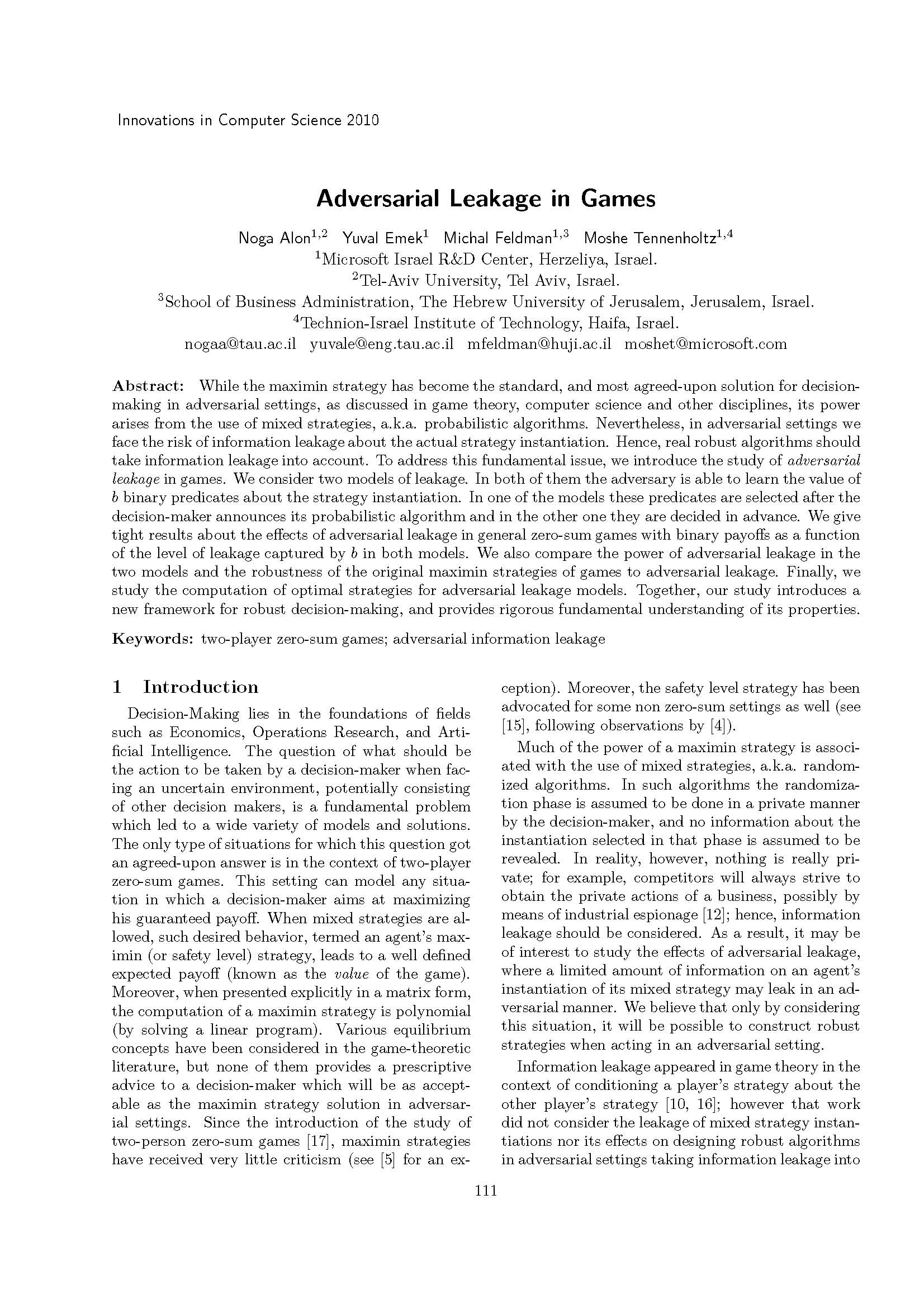ICS 2010
|
|
Welcome to ICS2010
Innovations in Computer Science - ICS 2010, Tsinghua University, Beijing, China, January 5-7, 2010. Proceedings, 111-119,
978-7-302-21752-7
Tsinghua University Press
While the maximin strategy has become the standard, and most agreed-upon solution for decision-making in adversarial settings, as discussed in game theory, computer science and other disciplines, its power arises from the use of mixed strategies, a.k.a. probabilistic algorithms. Nevertheless, in adversarial settings we face the risk of information leakage about the actual strategy instantiation. Hence, real robust algorithms should take information leakage into account. To address this fundamental issue, we introduce the study of adversarial leakage in games. We consider two models of leakage. In both of them the adversary is able to learn the value of b binary predicates about the strategy instantiation. In one of the models these predicates are selected after the decision-maker announces its probabilistic algorithm and in the other one they are decided in advance. We give tight results about the effects of adversarial leakage in general zero-sum games with binary payoffs as a function of the level of leakage captured by b in both models. We also compare the power of adversarial leakage in the two models and the robustness of the original maximin strategies of games to adversarial leakage. Finally, we study the computation of optimal strategies for adversarial leakage models. Together, our study introduces a new framework for robust decision-making, and provides rigorous fundamental understanding of its properties. Preview: 
|
Copyright 2009-2010, Institute for Computer Science, Tsinghua University, All Rights Reserved.


